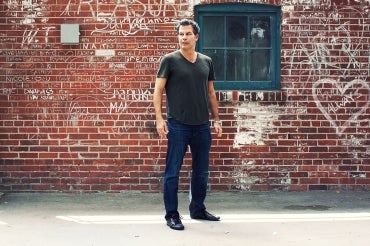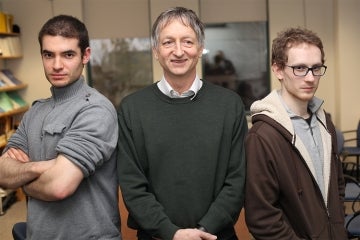U of T’s Richard Florida wants to help you find the best place to live with his new online course

Published: June 20, 2017
It took more than two years and multiple redesigns for University of Toronto University Professor Richard Florida and his team to perfect their massive online open course (MOOC) – which debuted last week on Coursera.
“It was an incredible learning experience,” says Florida, who is the director of cities at the Rotman School of Management's Martin Prosperity Institute. “I learned so much about how to make a course, how to use visuals, how not to overwhelm people with reading and writing, and how to give them information they need – that's been the really cool thing for me.”
City and You: Find Your Best Place draws from Florida’s extensive research and writings on what makes cities successful and prosperous, and presents it through video, short assignments and interactive features.
Read about Richard Florida's latest book
Since 2012, U of T scholars, including the “godfather of deep learning,” Geoffrey Hinton, have taught MOOCs on sites like Coursera and Edx. The courses are usually free, short – generally lasting just four to eight weeks – and incredibly popular. The most recent data from 2015 says almost two million people from all over the world have accessed the online courses.
U of T News spoke to Florida about why he decided to create the course and what people can learn from taking it.
What was your motivation behind creating this course?
First of all, we know, our cities are our most important economic and social unit. It's where business takes place, where economy is growing. We're putting billions of people in cities. We're spending trillions of dollars building cities. But in terms of your own life, I think the place you live is the most important decision you'll ever make. It's the most expensive decision you'll ever make. A house costs the most money – it's where you raise your kids – but no one gives it that much thought.
My field of urbanism, city planning, urban studies has all this incredible information bottled up. That's why I founded CityLab at the Atlantic – a website that talks about cities and urbanism – and I thought the next thing I could do was to build a course on the City101 – the hook on that is not just the city, but why the place you live is so important.
Do you have a specific audience in mind you're looking to reach?
Everybody. The world. Every single sentient person I think needs to hear this – and that's why the course is designed to appeal to every person throughout the world to help them understand more about what cities are and why urbanization is important, and help them to understand why the place they live in is so important to their life and their kids' lives.
What would you want the biggest takeaway from the course to be?
Making sure people find the best place for them and their family. Maybe they're in it – so it will confirm that, maybe they're not. They need to think about how they might find their way to a better place and how to find the place that will make them the most successful, the most productive, the most happy and create the greatest amount of joy and well-being for them.
What would you say to people who would be apprehensive about packing up and moving to a new city?
There's the mobile, who are looking to find a place, this course is for them. There's the people rooted around friends and family. And, there are people who are stuck, quite frankly and can't move.
For people who are rooted in their places, the course has a big component on how to make the place you live better fit you. It might not mean you move to a new city. It may mean you think about a new neighbourhood, but it may mean you get actively involved in your community and try to make it better. Whatever it is, understanding why you're there, what it means to you, whether you like it or not, and how easy it is to move or stay there and fix it, is really important.



